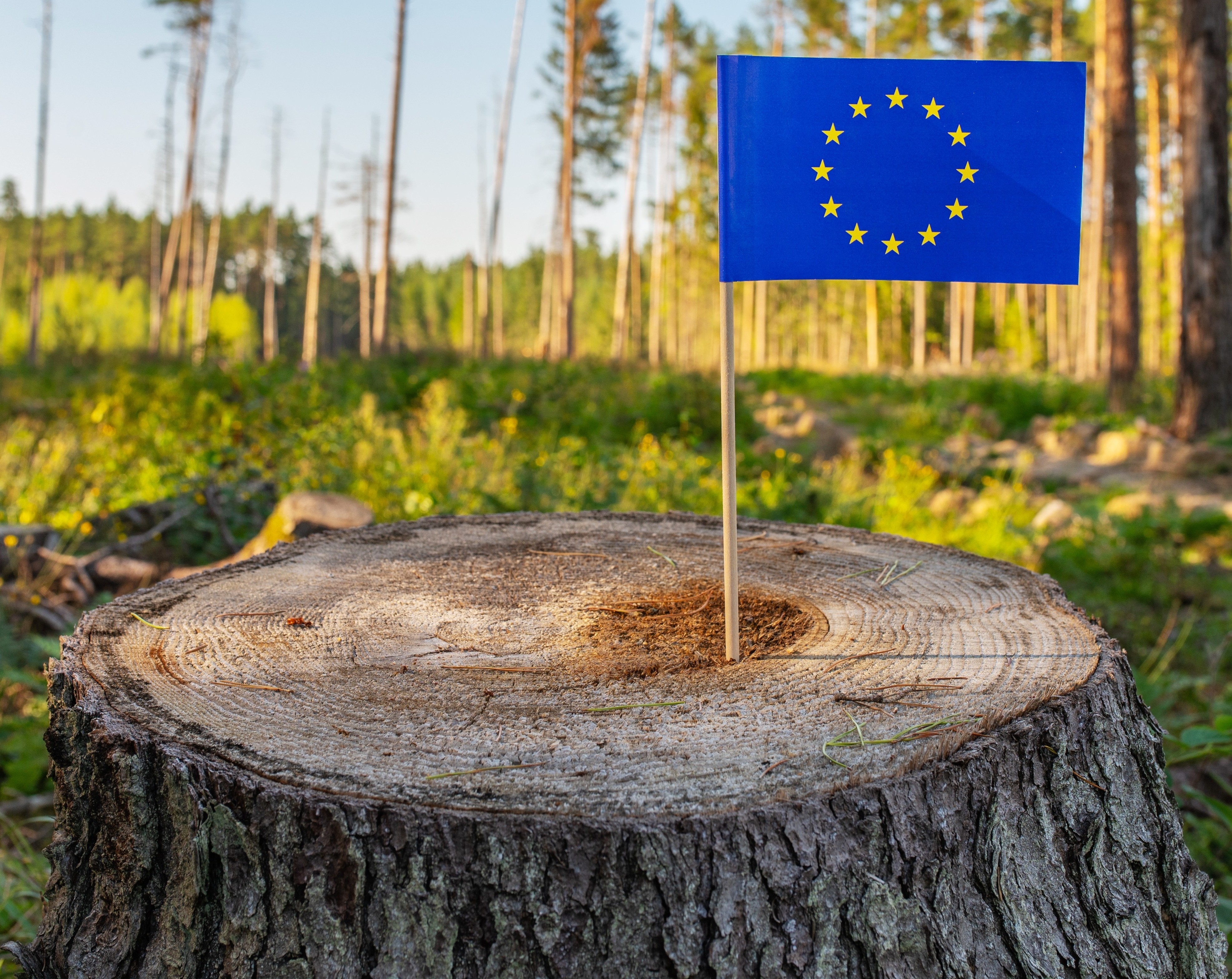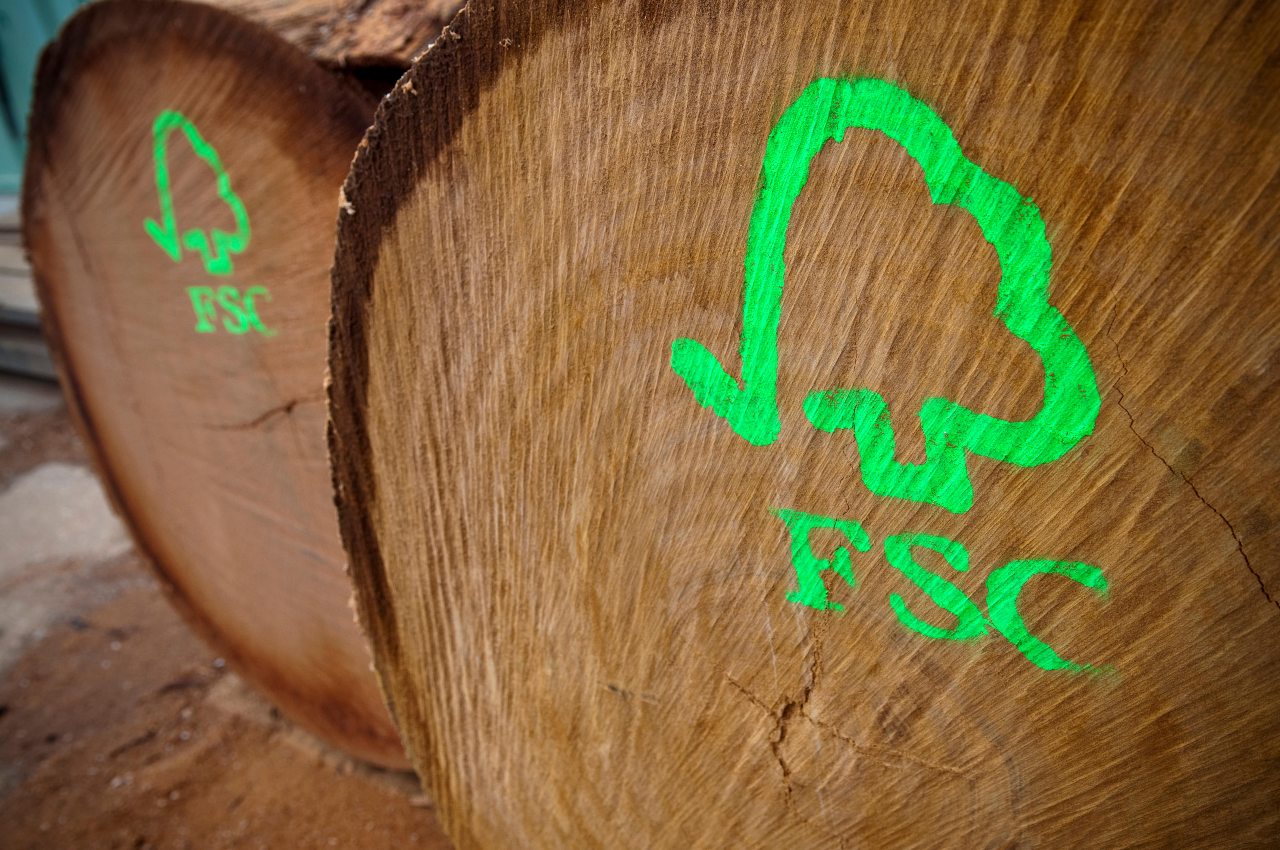Respondents surveyed in 25 European countries believe the EU should introduce laws to outlaw goods being sold that harm the environment and are the result of deforestation

An EU-wide survey found 91% of those surveyed believe deforestation is harmful to the people and wildlife that live in affected areas.
New regulation is needed to
ensure products sold in the European Union do not contribute to global deforestation,
according to 87 per cent of European residents surveyed in a new continent-wide
poll
Respondents surveyed in 25
European countries – including France, Germany, the UK and Spain – believe the
EU should introduce laws to outlaw goods being sold that harm the environment
and are the result of deforestation.
The YouGov
poll was commissioned by the Environmental Investigation Agency, Fern,
Greenpeace and WWF and shows there is overwhelming support for greater forest protections
to be put in place.
The EU has introduced policies to
curb the illegal
timber, illegal
fishing and conflict
minerals trades but its inaction on deforestation linked to
agricultural commodities imports has been criticised by parliamentarians, NGOs,
governments and increasingly so, the general public.
The survey, conducted among
20,892 adults, also found 91 per cent of those surveyed believe deforestation
is harmful to the people and wildlife that live in the affected areas and the
same percentage said they care about forests and wildlife.
Hannah Mowat, campaigns
coordinator at Fern, said on behalf of the NGOs: “Europeans have made it very
clear: they understand the terrible consequences of deforestation and don’t
want to be complicit in this tragedy.
“They don’t want to buy dairy
products, steaks or snacks that are tainted by forest destruction.”
From large-scale cattle ranching
and soy cultivation in South America to industrial palm oil plantations which
are carving up forests in Indonesia and DR Congo, the global deforestation of
lands is persisting.
The tropics lost 12.8 million
hectares of tree cover in 2018, according to a recent Global
Forest Watch report. The destruction of primary forest also continued
unabated with 3.6 million hectares – an area the size of the Belgium –
disappearing globally last year.
Meanwhile, forest loss in Ghana
and Ivory Coast increased 60 per cent and 26 per cent respectively during the
year – the highest country increases observed in the report and partly the
result of widespread cocoa
farming in the two nations to meet European and global demand for
chocolate.
It was estimated
that in 2012 the EU imported €6bn ($6.7bn) of beef, soy,
palm oil and leather that were grown or reared on illegally cleared land in the
tropics, almost a quarter of the world trade.
In December 2018, the EU
published a road
map to “step up European Action against Deforestation and Forest
Degradation” as part of its international commitment to halt deforestation by
2020.
The road map outlines a series of
actions the EU may take on the issue, including a desire to “promote
sustainable and transparent supply chains”, but the initiative is seen by many
as not going far enough.
By simply encouraging the private
sector to improve practices and introduce ‘zero deforestation’ policies, the
actions mooted in the road map are void of any concrete measures that demand EU
importers of at-risk commodities must meet certain minimum regulatory
standards.
The European Commission has
announced that it is to ban the use of palm oil for biofuels (Europe uses
around four
million tonnes of crude palm oil for diesel each year), but the
absence of binding regulations to address broader agricultural imports is a
concern.
“The solution must be EU-wide
regulation,” Mowat added. “This is the last chance for the EU to stand by its
commitment to halt deforestation by 2020. Failing to act would be a black mark
on M. Juncker’s environmental legacy.”
UK retailer Iceland announced in
2018 that it is to ban
the use of palm oil in its own brand products and while others have
made similar pledges, global retailers continue to source commodities from
firms linked to deforestation and illegalities.
Palm oil giant Wilmar – whose
clients include Unilever, Nestle and Colgate-Palmolive – has been accused of
illegal deforestation for years and although it passed a zero deforestation
policy in 2013, a recent
Greenpeace report found the Singaporean firm was still sourcing palm
oil from producers who had deforested large swathes of Indonesian rainforest.
Meanwhile, in May 2019 Earthsight research revealed that
several UK and European supermarkets continue to stock beef from JBS – a
Brazilian meatpacking giant which has previously been implicated in illegal
deforestation of the Amazon and other environmental malpractices.
The Forest
500, an initiative by the NGO Global Canopy which monitors the most
influential companies and financial institutions in palm oil, soy, cattle and
timber sectors, said in March that
none of the firms analysed will meet their 2020 goal of eliminating
commodity-driven deforestation in their supply chains.



